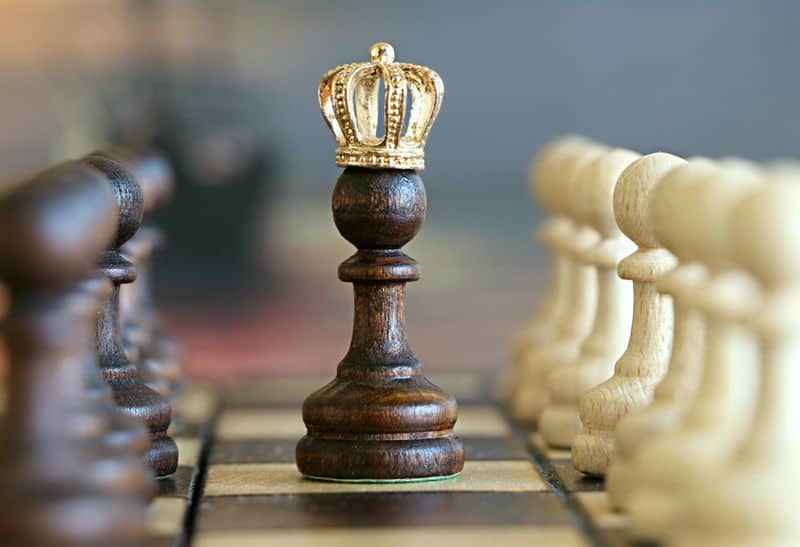Ever wonder what makes super smart people tick? Brainy folks aren’t just born that way – they develop special habits that keep their minds sharp and ready for action.
While they might seem mysterious, these mental wizards actually follow patterns anyone can learn.
Let’s peek into the daily routines of highly intelligent people that make their brains work like supercomputers!
1. Book Worms With No Shame
Smart people devour books like kids eat candy – without guilt and at every opportunity. You’ll spot them reading on buses, in waiting rooms, and even while brushing their teeth (somehow).
The average intelligent person reads 50+ books yearly, while most Americans finish just 4. What’s their secret? They don’t “find time” to read – they make it by keeping books everywhere: nightstands, bathrooms, and digital devices.
Fun fact: Many brilliant minds read multiple books simultaneously, switching between topics to keep their brains engaged. Einstein reportedly had several books going at once, claiming it helped him make unexpected connections between different subjects.
2. Embracing the Power of ‘I Don’t Know’
Contrary to popular belief, intelligent people admit ignorance more readily than others. “I don’t know” rolls off their tongues with surprising ease, followed quickly by “but I’ll find out.”
Smart folks recognize that pretending to know everything actually blocks learning. They understand that acknowledging knowledge gaps is the first step toward filling them. Their ego doesn’t need protection from uncertainty.
Warren Buffett, worth billions, attributes much of his success to knowing his limitations. He famously invests only in businesses he fully understands, staying away from tech companies for decades because he couldn’t predict their future – a limitation he openly acknowledged.
3. Morning Brain Workouts Before Coffee
While most people check social media first thing in the morning, the intellectual elite tackle complex problems before breakfast. Their brains, fresh from sleep, haven’t yet been bombarded with the day’s distractions.
Many solve puzzles, write in journals, or tackle their most challenging work within minutes of waking. The morning brain runs on different chemicals – specifically higher cortisol levels that peak 30-45 minutes after waking, creating ideal conditions for focused thinking.
Maya Angelou famously woke at 5:30 AM to write in hotel rooms before anyone else was awake. She claimed these early hours produced her best work because her mind wasn’t yet “cluttered with trivialities.” Her morning ritual fueled a brilliant literary career spanning decades.
4. Talking to Themselves (And Not Apologizing)
Caught muttering to yourself? Congratulations – you might be a genius! Smart people regularly talk through problems aloud, even when alone. This habit, called self-directed speech, helps organize thoughts and improve memory retention.
Albert Einstein reportedly wandered Princeton’s halls mumbling equations to himself. When embarrassed students spotted him, he’d simply smile and continue his verbal processing. The practice forces the brain to slow down and process information through additional sensory channels.
Research shows people who verbalize their thinking solve problems up to 30% faster than silent thinkers. So next time someone catches you chatting with yourself about a complex issue, just explain you’re engaging in advanced cognitive processing techniques!
5. Napping Without Guilt
Brilliant minds embrace afternoon naps with zero shame. Thomas Edison, Einstein, and Salvador Dalí all credited power naps for boosting creativity and problem-solving abilities.
These weren’t lazy snoozefests but strategic brain resets. Dalí’s technique was particularly strange – he’d hold a spoon while dozing in a chair. As he fell into deeper sleep, the spoon would clatter to the floor, waking him with fresh ideas from that twilight state between wakefulness and dreams.
Science backs this up: 10-20 minute naps improve cognitive function without causing sleep inertia (that groggy feeling). NASA found that pilots who took 26-minute naps showed 34% improvement in alertness and 54% improvement in task performance compared to those who powered through fatigue.
6. Hanging Out With People Who Make Them Feel Dumb
Smart people purposely surround themselves with even smarter friends. Rather than being the smartest person in the room, they seek environments where they’re the intellectual underdog. It’s like mental weightlifting with heavier weights than you’re used to.
Jim Rohn famously said we become the average of the five people we spend the most time with. Intellectual heavyweights take this seriously, cultivating relationships with people whose knowledge intimidates them.
They leave conversations feeling mentally stretched rather than validated. The founding members of the Paypal Mafia – including Elon Musk, Peter Thiel, and Reid Hoffman – created a culture where the best idea won regardless of who proposed it.
This ruthless intellectual environment produced seven billionaires and dozens of multi-millionaires from one company.
7. Obsessive Question Asking
Intelligent people ask questions with the relentless curiosity of a four-year-old. They’re not satisfied with surface-level answers and will keep digging until they reach bedrock understanding. Their favorite word? “Why?”
Richard Feynman, Nobel Prize-winning physicist, developed his famous technique for learning: explain concepts in simple terms as if teaching a child. This approach forces you to identify knowledge gaps that fancy terminology might hide.
When stuck, he’d ask basic questions others were too embarrassed to voice. Smart folks also ask questions differently – they seek understanding rather than trying to demonstrate their own knowledge.
Notice how they listen more than they speak in conversations, peppering discussions with thoughtful inquiries rather than waiting for their turn to sound impressive.
8. Turning Everything Into a Game
Brainiacs transform boring tasks into mental competitions. Washing dishes becomes a time-trial challenge. Grocery shopping turns into a budgeting optimization puzzle. This gamification isn’t just for fun – it’s strategic mental exercise.
Josh Waitzkin, chess prodigy and martial arts champion, applies this principle across domains. When stuck in traffic, he practices controlling his breathing instead of getting frustrated. While waiting in lines, he studies human behavior patterns or practices memory techniques.
The brain releases dopamine during gameplay, enhancing focus and memory formation. By treating mundane activities as games, smart people maintain engagement while developing problem-solving skills.
Next time you’re bored with routine tasks, ask yourself: “How could I turn this into a winnable game?” Your inner genius will thank you.
9. Weird Sleep Schedules That Work
Forget conventional sleep wisdom! Many intellectual giants follow bizarre sleep patterns that would horrify sleep doctors. Nikola Tesla reportedly slept just two hours per night, while Leonardo da Vinci preferred multiple 20-minute naps throughout the day.
Modern geniuses often experiment until finding their optimal sleep rhythm, regardless of social norms. Some are extreme night owls, hitting peak creativity at 3 AM when the world is quiet. Others rise before dawn to harness morning mental clarity.
The key isn’t following one perfect schedule but discovering your unique chronotype – when your brain naturally performs best.
Smart people pay attention to their energy patterns rather than forcing themselves into conventional schedules. They’re also more likely to keep sleep journals, tracking how different patterns affect their cognitive performance.
10. Collecting Hobbies Like Pokemon
Brilliant people rarely stick to one hobby – they accumulate diverse interests like collectors. You might find a physicist who plays violin, practices archery, and brews beer on weekends. This isn’t aimless dabbling but strategic cross-training for the brain.
Steve Jobs studied calligraphy in college, which later influenced Apple’s revolutionary typography. Richard Feynman was not just a Nobel-winning physicist but also a skilled bongo player, painter, and safecracker.
These seemingly unrelated pursuits created neural connections that sparked creative breakthroughs in their primary fields. Varied hobbies force the brain to build new pathways, preventing cognitive ruts. Each new skill becomes a lens through which to view problems differently.
So when your smart friend suddenly takes up pottery or bird watching, they’re not being flaky – they’re expanding their mental toolkit!











